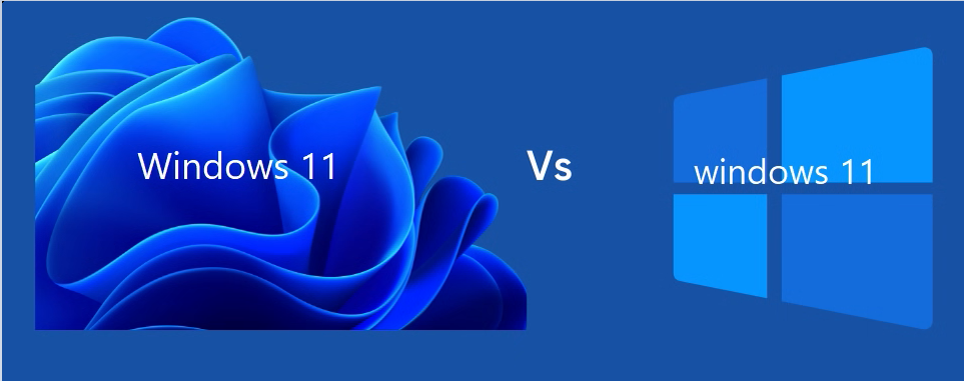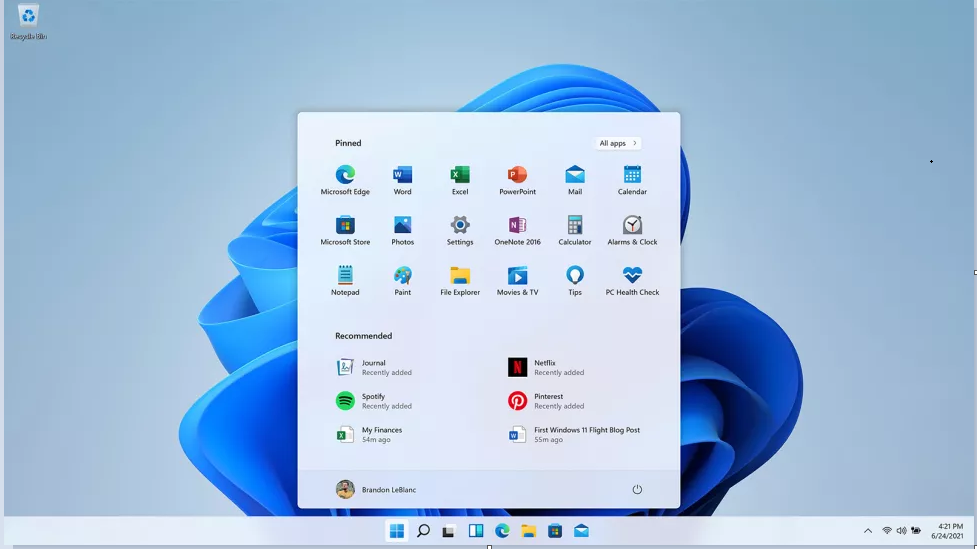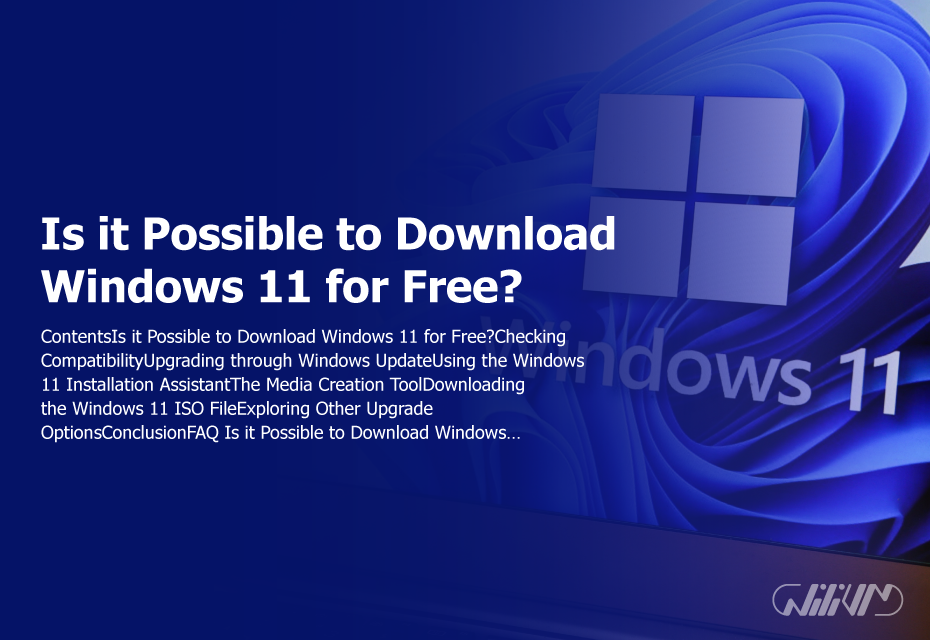Is Windows 11 Better than Windows 10?
Windows users are always keen to discover the newest updates and enhancements to their operating system. With the arrival of Windows 11, the issue on everyone’s mind is whether it is better than its predecessor, Windows 10. In this post, we will look into the fundamental changes between the two versions and help you determine if upgrading to Windows 11 is your correct decision.

Contents
Key Differences between Windows 11 and Windows 10
Interface Changes and Design Overhaul
One of the first things that customers notice when comparing Windows 11 with Windows 10 is the considerable interface changes. Windows 11 provides a clean and contemporary look with centred taskbar icons and a redesigned Start menu. This shift from the typical left-aligned taskbar may take some getting accustomed to for long-time Windows users. However, the new design strives to give a more simplified and aesthetically attractive experience.
In addition to the centred taskbar, Windows 11 has rounded edges on Windows, revised program icons, and new Fluent Emojis specific to this edition. While the design changes are slight, they add to an overall updated appearance and feel of the operating system.

Enhanced Productivity Features
Windows 11 brings various productivity enhancements to the table. One major improvement is the support for Android apps, enabling users to effortlessly run their favourite mobile applications alongside regular Windows programs. This connection offers up a world of possibilities for consumers who primarily depend on Android applications for their everyday work.
Furthermore, Windows 11 includes new features like Live Captions and Focus mode. Live subtitles offer real-time subtitles for multimedia material, boosting accessibility for those with hearing impairments. Focus mode enables users to tailor notification settings for certain times, limiting distractions and enhancing productivity during concentrated work sessions.
Hardware Requirements and Compatibility
Consider the hardware requirements and compatibility before choosing to upgrade to Windows 11. A TPM security chip and a more modern CPU are two new hardware specifications introduced by Windows 11. These specifications improve the operating system’s performance and security, but they might be difficult for users with older hardware to meet.
The process of upgrading to Windows 11 should go smoothly if your computer satisfies the minimal hardware requirements. To fully benefit from Windows 11’s advantages, you may need to think about investing in new hardware if your current PC is inadequate. It is important to note that Windows 11 is now the standard operating system for new PCs since Microsoft no longer offers new Windows 10 licenses.
Reasons to Upgrade to Windows 11
Access to New Features and Enhancements
Access to new features and improvements not present in Windows 10 is one strong argument for upgrading to Windows 11. A new Microsoft Store look, improved gaming capabilities with DirectStorage technology, and improved virtual desktop compatibility are just a few of the enhancements that come with Windows 11. These improvements make it easier and more pleasurable for users to interact with numerous domains.
Future-Proofing Your System
Users who wish to keep current with the most recent developments must upgrade to Windows 11 as a result of Microsoft’s statement that Windows 10 will no longer acquire new features. By updating, you may assure compatibility with future software updates, security patches, and feature releases and future-proof your machine. This proactive method reduces the danger of using an out-of-date operating system and increases the PC’s durability.
Improved Security Features
Security is a top priority for Windows 11, which provides improved defences against malware, viruses, and online dangers. The new operating system enhances Windows 10’s security capabilities and adds new safeguards to protect user data and privacy. The addition of a TPM security chip and secure boot specifications strengthens Windows 11’s overall security posture.
Reasons to Stick with Windows 10
Compatibility with Older Hardware
While Windows 11 has many advantages, it’s crucial to take your current hardware compatibility into account. It could be more sensible to continue with Windows 10 if your computer does not satisfy the minimum hardware requirements for Windows 11. Microsoft will provide upgrades and support for Windows 10 until October 14, 2025, guaranteeing a dependable and stable operating system for consumers with outdated hardware.
Familiarity and Stability
Since its debut in 2015, Windows 10 has earned the confidence of many users as a reliable operating system. It delivers a recognizable user interface and process to which users have become used over time. Staying with Windows 10 may be the best option for those who value stability and minimum interruption. Windows 10 offers a polished and mature experience that does not need adjusting to the new UI features included in Windows 11.
Software and Peripheral Compatibility
The compatibility of your applications and peripherals is another factor to take into account when determining whether to update to Windows 11. While Windows 11 attempts to keep most Windows 10 software and hardware compatible, there may be certain instances when specific programs or devices don’t function as planned. Make sure that all of your necessary programs and hardware are compatible with Windows 11 before making the move.
Making the Decision: Windows 11 or Windows 10?
Your own demands and circumstances will ultimately determine whether you decide to update to Windows 11. Upgrading to Windows 11 makes sense if you have newer hardware, enjoy the new features and additions, and place a high priority on remaining current with new developments. On the other hand, keeping with Windows 10 could be a better choice if you have older technology, like the reliability and familiarity of Windows 10, and want to be sure that your current applications and peripherals will work with it.
It is important to remember that Microsoft will provide support for Windows 10 until October 14, 2025. You will continue to get important security updates at this period, assuring your system’s continuing security. To preserve the highest level of security and functionality beyond this time, it is suggested that you switch to an operating system that is supported.
Conclusion
In conclusion, Windows 10 and Windows 11 both offer advantages. Windows 10 delivers stability, compatibility, and familiarity, whereas Windows 11 offers a new look, new capabilities, and improved security measures. Make an educated choice that fits your unique requirements and tastes after evaluating your hardware and priorities. Regardless of the version you choose, Windows will continue to provide a reliable and adaptable operating system for all of your computing requirements.
FAQ
Does Windows 11 offer better performance and speed compared to Windows 10?
Windows 11 is designed to deliver improved performance and speed over Windows 10. It introduces optimizations and refinements that can enhance system responsiveness, resource management, and overall efficiency. However, the actual performance may vary depending on your hardware configuration and specific usage scenarios.
Is Windows 11 more secure and reliable than Windows 10?
Windows 11 brings additional security enhancements to further protect user data and privacy. It includes features such as Windows Hello for secure authentication, improved Windows Defender antivirus and antimalware capabilities, and enhanced protection against ransomware attacks. While Windows 10 also receives security updates, Windows 11 incorporates newer security technologies.
Are there any compatibility issues when upgrading from Windows 10 to Windows 11?
Upgrading from Windows 10 to Windows 11 may have compatibility requirements. Some older devices or hardware configurations may not meet the minimum system requirements for Windows 11. It is recommended to check Microsoft's official website or use the PC Health Check tool to determine if your device is compatible before attempting the upgrade.
Should I upgrade to Windows 11 if I'm satisfied with Windows 10?
The decision to upgrade to Windows 11 ultimately depends on your specific needs and preferences. If you are satisfied with the functionality and performance of Windows 10 and your device meets your requirements, there may not be an immediate need to upgrade. However, Windows 11 offers new features, design improvements, and enhanced security, which could be appealing for users seeking a more modern and optimized experience.







